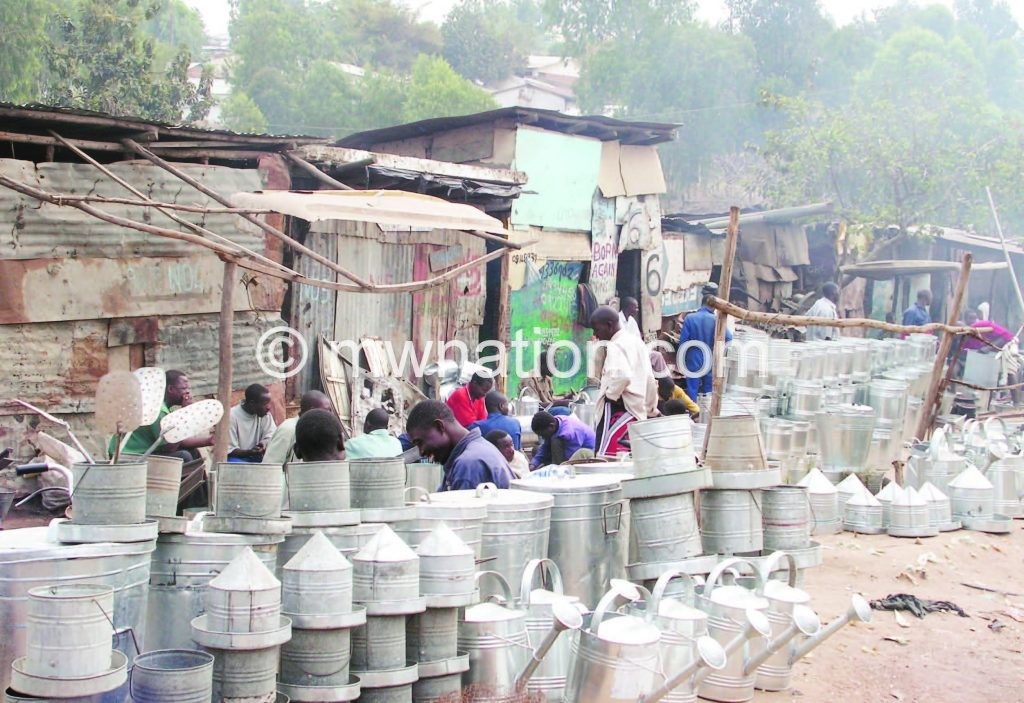Loan repayments choke SMEs, hospitality sectors
The hospitality industry, small and medium enterprises (SMEs) and individuals are finding it hard to pay back their bank loans due to the impact of Covid-19.
According to National Bank of Malawi (NBM) plc corporate affairs and marketing manager Akossa Hiwa, the pandemic has significantly slowed businesses, especially for the hospitality and SMEs sector; hence, the challenge in loan repayments.

She said this on Friday on the sidelines of the Association of Business Journalists (ABJ) media training held at Game Haven in Bvumbwe, Thyolo.
Said Hiwa: “It is becoming hard to recover the loans from these customers because the pandemic has significantly slowed or halted their businesses.
“They have greatly been affected, especially the SMEs, because buying and selling has also been affected which is also impacting on the repayment of loans.”
Likewise, she said those plying business in the hospitality industry have been knocked hard.
Hiwa, said individual customers are also struggling, with some retrenched and incapable of servicing the loans,
However, she said big corporate entities are not much affected in repaying their loans.
“We are engaging the customers on case by case basis to plan on how they may settle the outstanding loans, including restructuring which include lengthening repayment period,” said Hiwa.
In an interview yesterday, Malawi Tourism Council board chairperson Jones Malili admitted that the situation for the hospitality industry is dire.
He said: “The situation is critical. I can tell you that I am one of the living examples of getting salary cuts due to Covid-19.
“As an industry, we see loan restructuring as a solution to dealing with the current situation, including lengthening loan repayment period, and lowering the interest payment to ensure customers repay loans so that banks don’t lose out completely.”
However, Malili expressed concern that a majority of banks are not flexible enough to restructure customers’ loans.
Consumers Association of Malawi executive director John Kapito yesterday said they had proposed during the 2021/22 pre-budget consultations for government to prioritise long-term stimulus assistance to SMEs and the hospitality industry.
He said: “Stimulus packages are not free, but they are free of any extra charges which the banks do not offer. We are sure that certain national budget lines passed by Parliament will not help make Malawi better as they are purely consumptive”.
Kapito also observed that if the Affordable Inputs Programme funds were targeted at assisting the SMEs and the hospitality industry, the nation would soon have seen huge benefits that would have contributed to job creation and growing the economy.
“I wished government saw the urgent need to provide stimulus packages which can be recovered over time,” he said.
A recent report by the Reserve Bank of Malawi shows that credit quality of commercial banks worsened in 2020 despite measures instituted by the central bank to mitigate the impact of the Covid-19 pandemic on the economy.
This, according to experts, is an indication that the interventions, such as the introduction of moratorium for financial institutions failed to bear intended results.
In particular, the non-performing loans (NPLs) increased by 11.1 percent to K44.7 billion from the pre-pandemic level of K40.3 billion in 2019.
Subsequently, the NPL ratio remained above the prudential benchmark of five percent throughout 2020, peaking at 10.3 percent at the onset of the Covid-19 pandemic in May 2020, but has now stabilised around six percent.





